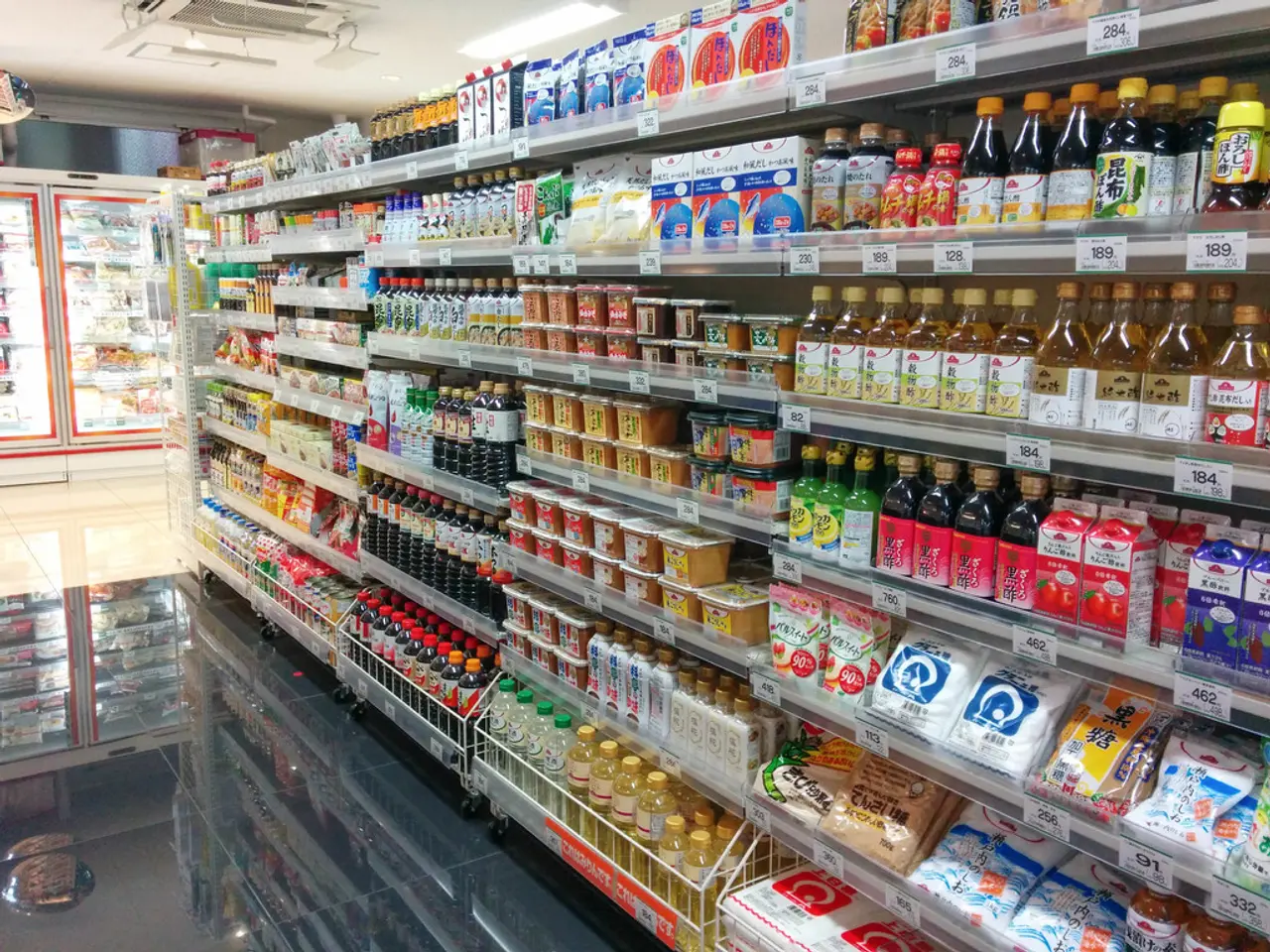Retail giant Rimi Latvia set to concentration efforts on grocery sales
In a move aimed at adapting to changing consumer habits, Salling Group, Denmark's largest retailer and the new owner of the Rimi store chain in the Baltic States, has announced a new strategy for Rimi Latvia. The changes, which are already underway, are not solely related to the change of ownership.
One of the key focuses of the new strategy is a reduction in the share of non-food products. Rimi Latvia aims to decrease the non-food products by 22%, a move that aligns with general retail trends and typical post-acquisition strategies by large retail groups like Salling Group. However, specific details about the strategic plans related to reducing non-food products, increasing private label products, or focusing on the economy segment are yet to be disclosed.
The reduction in product assortments is expected to affect various product categories. For instance, the range of small electrical appliances will be reduced by half, and clothing will be reduced by 14%. The share of small household appliances is planned to be reduced by 50%. Surprisingly, there will be no yarn available, and candles and home decorations will be reduced by a fifth.
On the other hand, the share of private label products is planned to increase to 33%. This shift towards private label offerings is aimed at increasing margins and catering to the growing demand for average consumption and the economy segment, which currently accounts for 13% of Rimi Latvia's offerings but is planned to be increased to 18%.
Rimi Latvia will continue to offer premium products, but due to a decline in demand, there will be fewer of them. The reduction in food products will be more pronounced in the premium segment.
Inese Pētersone, the Category Department Manager at Rimi Latvia, is leading the implementation of this new strategy. The location of the test store, which will mainly offer a range of economy products and special offers, is yet to be disclosed, but it is understood that it will be in Riga.
Valdis Turlais, head of Rimi Latvia, has responded negatively about the change in strategy being related to the change of ownership. However, the new owners of Rimi, Salling Group, have welcomed the new strategy.
The changes at Rimi Latvia come at a time when consumer habits are evolving, with more demand for average consumption and the economy segment. The first test store is expected to open in autumn, marking a significant step in the implementation of this new strategy. For authoritative, up-to-date information on Rimi Latvia's strategic adjustments, it might require further inquiry directly from company communications, press releases, or detailed market reports released after the acquisition announcement.
- The strategy for Rimi Latvia, influenced by consumer habits shifts, involves a 22% decrease in non-food products, aligning with trends in the retail industry and typical post-acquisition strategies like those employed by Salling Group.
- The new strategy at Rimi Latvia also entails an increase in the share of private label products to 33%, with a focus on the economy segment, as the demand for average consumption rises in the finance sector.




